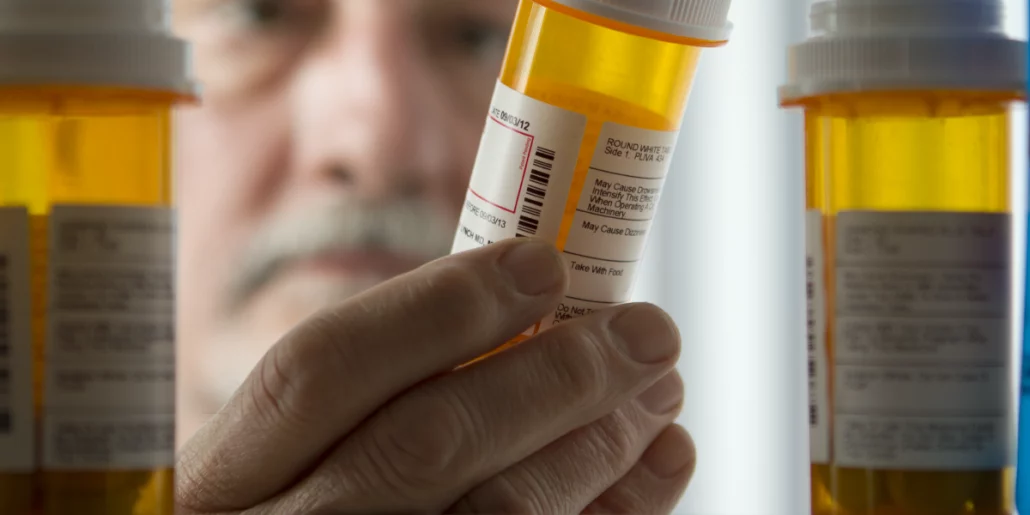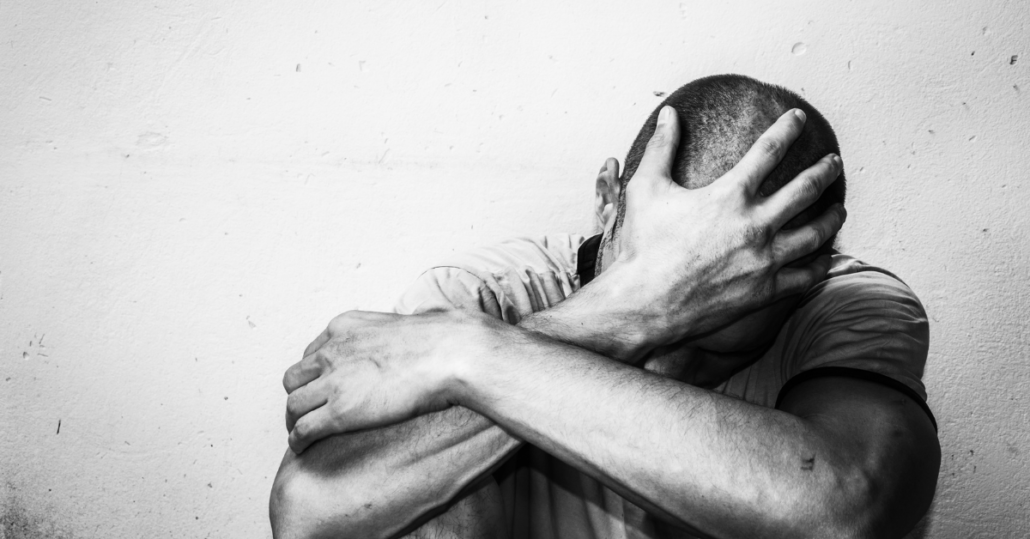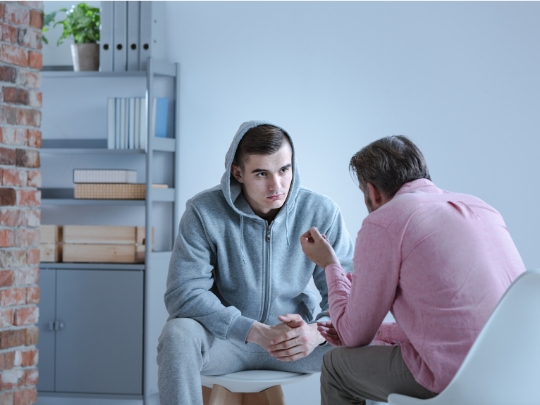What is Effexor?
Venlafaxine is a prescription drug. It comes as an oral tablet and an oral capsule. Venlafaxine oral tablet comes in immediate-release and extended-release forms. Both forms are only available as generic drugs. Generic drugs usually cost less than brand-name drugs.
It is used to treat depression (immediate-release tablets and extended-release tablets). It’s also used to treat social anxiety disorder (extended-release tablet only).
Venlafaxine may be used as part of combination therapy. This means you may need to take it with other medications to treat your condition.
Venlafaxine belongs to a class of antidepressant drugs called serotonin-norepinephrine reuptake inhibitors (SNRIs). A class of drugs is a group of medications that work in a similar way. These drugs are often used to treat similar conditions.
SNRIs work by increasing the levels of substances called serotonin and norepinephrine in your brain. Having more serotonin and norepinephrine in your brain can improve your symptoms of depression and anxiety.
Do not crush, break, or open an extended-release pill. Ingest it whole to bypass exposure to a potentially lethal dose. Never crush or break an Effexor pill to inhale the powder or combine it into a liquid to inject the drug into your vein. This can cause death.
Mixing Effexor and Alcohol?
The threats of mixing drugs and alcohol are dangerous, particularly if there is a potential interaction between the drug and the alcohol. Interactions can negatively affect your body, especially your liver, circulation, and brain. Your social life and family life can also be hurt by addiction.
Yet many people still mix alcohol and drugs regardless of the harmful impacts on their bodies and mental health. Effexor is a common anti-depressant and anti-anxiety medication that, when mixed with alcohol, can actually aggravate the symptoms of depression and further deteriorate a person’s mental well-being. There are different reasons not to mix Effexor and alcohol, one of them being that it can become seriously addictive very quickly, getting the user connected to the mix, which can further harm the user’s body, mind, and lifestyle.
The results of this toxic mixture can quickly become a risky combination that can create both short-term and lasting side effects that can affect all aspects of your life, including your mental health and your physical health. This dependence can derail lives, so it is essential to understand this situation’s factors. Please read on to understand more about the mixture of Effexor and alcohol, how to tell if you have an addiction, and the best ways to fight this addiction.
Skip To:
- What is Effexor?
- Mixing Effexor and Alcohol
- Effexor and alcohol interaction
- Effexor and alcohol side effects
- Effexor and alcohol blackouts
- Dangers of Effexor and alcohol
- Can Effexor and alcohol kill you?
- Effexor and alcohol hangover
- Alcoholism Treatment
- Finding the Next Level of Treatment At We Level Up NJ
Learn More:

Get Help. Get Better. Get Your Life Back.
Searching for Accredited Drug & Alcohol Rehab Centers Near You? Or Mental Health Support?
Even if you have failed previously, relapsed, or are in a difficult crisis, we stand ready to support you. Our trusted behavioral health specialists will not give up on you. Call us when you feel ready or want someone to speak to about therapy alternatives to change your life. Even if we cannot assist you, we will lead you wherever you can get support. There is no obligation. Call our hotline today.
FREE Addiction Hotline – Call 24/7Effexor and Alcohol Interaction
Alcohol can interact with many drugs, including antidepressants, and sometimes this mixing can be dangerous. The effects of alcohol are magnified by the presence of antidepressants in the body. Drinking alcohol with an antidepressant can result in dizziness, blurred vision, nausea, and vomiting. Extreme dizziness or altered vision may lead to a fall or a car accident. Decisions made while under the influence of alcohol combined with antidepressants can result in poor decisions like taking unnecessary risks and saying or doing things that one might not otherwise say or do. If you have Effexor and alcohol in your body, signs of mixing such as dizziness, confusion, slowed reflexes and reaction time, blackouts, memory loss, anxiety or nervous spells, and physical coordination problems may appear.
Effexor and Alcohol Side Effects
The alcohol can change the outcome of Effexor, causing the prescription of the drug to be generated ineffective altogether. The quantity of alcohol needed to balance Effexor varies from person to person because of many factors, including dosage, alcohol type, body weight, and when the drugs were taken.
Even though there hasn’t been much research with strict controls on the effects of drinking alcohol while taking Effexor, mixing the two drugs may exacerbate some of their negative effects. Even if occasionally consuming alcohol while taking Effexor may not be harmful, it is typically not advised to do so when using any antidepressant. Many antidepressants, including Effexor, can cause adverse effects that are comparable to those of alcohol, therefore taking both medications at the same time can amplify these effects.
The biggest risk of mixing Effexor and alcohol is internal bleeding. This is because Effexor, like many other drugs in its family, can cause bleeding issues because it slows the amount of time it takes for platelets to form clots and stop bleeding. Alcohol has a blood-thinning effect, so when the two come together, a user can be at extremely high risk for the following blood problems:
- Bruising easily
- Blacking out
- Worsen depression symptom
- Bleeding problems
- Bleeding inside the brain
- Bleeding in the stomach
- Nosebleeds
What happens if you drink alcohol with Effexor XR?
Some signs that Effexor XR and alcohol are mixing and affecting your body are confusion, dizziness, slowed reflexes or reaction time, blackouts, memory loss, anxiety or nervous spells, physical coordination problems, and showing signs of being far more intoxicated for what you drank. A large proportion of patients treated with paroxetine, mirtazapine, and other antidepressants, such as venlafaxine, gain a significant amount of weight.
Take this medication by mouth as directed by your doctor, usually once daily with food, either in the morning or evening. Do not crush, chew, or dissolve this medication. Doing so can release all of the drugs at once, increasing the risk of side effects. Swallow whole without crushing or chewing.
If you are taking the capsules, swallow them whole. If you have trouble swallowing the capsules whole, you may open the capsule and sprinkle the contents onto a spoonful of applesauce. Swallow all of the mixtures right away without chewing. Drink a glass of water after each dose.
Effexor and Alcohol Blackouts
There are many risks associated with drinking and passing out. People typically have lowered inhibitions, a phony sense of social confidence, and a drive to socialize when they are drinking. People who have blackouts won’t recall what they did, but it doesn’t mean they were idle. When under the influence of alcohol, a person may:
- Start fights
- Engage in high-risk sexual behaviors
- Drive while intoxicated
Waking up from a blackout can be risky. Family members and friends might be furious with you for something that you’ve said or done while blacked out. They may be left wondering how they can help. You may have no notion of who you’re with, where you are, or how you’ve gotten there. You’ll also have a pervasive feeling that notable time has been lost and that the results of your unremembered actions are threatening just around the corner.

Dangers of Effexor and Alcohol
Venlafaxine may increase suicidal thoughts or actions in some children and young adults. This usually occurs within the first few months of treatment or during dosage modifications. Venlafaxine should not be used in people younger than 18 years of age.
This drug may cause a conceivably life-threatening infection called serotonin syndrome. Symptoms of serotonin syndrome include:
- hallucinations and delusions
- agitation
- coma
- fast heart rate
- changes in blood pressure
- dizziness
- loss of consciousness
- seizures
- shakiness
- muscle tremor or stiff muscles
- sweating
- nausea
- vomiting
High blood pressure: Venlafaxine may raise your blood pressure. Your doctor will likely make sure your blood pressure is average before you begin taking venlafaxine. They will check your blood tension regularly during your treatment.
Increased bleeding: This drug may rise the risk for bleeding or injury if used with aspirin, nonsteroidal anti-inflammatory drugs such as ibuprofen or naproxen, or the blood thinner warfarin. Talk with your doctor if you’re taking or planning to take any prescription or over-the-counter medications that increase the risk of bleeding.
It’s not advisable for persons with depression to use alcohol as a coping method to get through their depression, which is something that many do. Alcohol depresses the brain since it is a depressant. Long-term alcohol consumption has been linked to worsening depression and anxiety symptoms, so combining it with an Effexor or other antidepressant and anti-anxiety medication can have a negative impact on your treatment plan.
Combining alcohol and Effexor can heighten the perception of intoxication because both drugs have recognized adverse effects that mimic those of alcohol.
Can Effexor and Alcohol Kill you?
Although it is indefinite exactly how SNRIs like Effexor relieve depression and anxiety symptoms, it is considered that this occurs because serotonin and norepinephrine levels and action in the brain are increased. Alcohol, on the other hand, slows down the brain’s activity, including the activity of the neurotransmitters, and as a result has a calming, relaxing effect on the nervous system.
Due to this soothing impact, drinking too much might make it difficult for certain people to think, speak, or behave appropriately. The adverse effects of both medications may be exacerbated when patients take Effexor and alcohol at the same time.
While the risks of combining alcohol and antidepressants are less well known than those of combining alcohol and other prescription drugs like opiate painkillers, sleeping aids, and benzodiazepines like Ativan, the interaction between the two is nonetheless very harmful. Alcohol and Effexor fight with one another for control over the activity of your neurotransmitters, increasing the likelihood that you will experience some of each drug’s negative effects.
.

Get Your Life Back
Find Hope & Recovery. Get Safe Comfortable Detox, Addiction Rehab & Mental Health Dual Diagnosis High-Quality Care at the We Level Up Treatment Centers Network.
Hotline (877) 378-4154Effexor and Alcohol Hangover
Increased indicators of intoxication could be one of the mild side effects of taking Effexor with alcohol. With this combination, serious side effects like bleeding issues or blacking out may also be possible.
Even though there hasn’t been much research with strict controls on the effects of drinking alcohol while taking Effexor, mixing the two drugs may exacerbate some of their negative effects. Even if occasionally consuming alcohol while taking Effexor may not be harmful, it is typically not advised to do so when using any antidepressant.
Many antidepressants, including Effexor, can cause adverse effects that are comparable to those of alcohol, therefore taking both medications at the same time can amplify these effects.
In addition to the potential negative effects of combining alcohol and Effexor, it’s crucial to be aware that alcohol might make the signs and symptoms of anxiety and depression disorders worse. When certain substances are combined, a person may suffer worsened anxiety and depressive symptoms, such as:
- Sadness and an empty feeling
- feeling anxious or suspicious
- mood changes, including becoming more irritable
- a diminished appetite
Alcohol can decrease the efficacy of Effexor in treating the signs and symptoms of anxiety and depression because it is an unfortunate substance in itself. Given the complexity of the situation, it is vague how much alcohol a person would need to consume to offset the effects of Effexor.
Alcohol consumption essentially negates the positive effects of Effexor and exacerbates the symptoms of mental illness. Alcohol consumption makes taking Effexor counterproductive because it makes the symptoms of the mental conditions it addresses worse.
Comfortable Facilities & Amenities
High-Quality Addiction & Mental Health Rehabilitation Treatment
Rehab Centers TourRenowned Addiction Centers. Serene Private Facilities. Inpatient rehab programs vary.
Addiction Helpline (877) 378-4154Proven recovery success experience, backed by a Team w/ History of:
15+
Years of Unified Experience
100s
5-Star Reviews Across Our Centers
10K
Recovery Success Stories Across Our Network
- Low Patient to Therapist Ratio
- Onsite Medical Detox Center
- Comprehensive Dual-Diagnosis Treatment
- Complimentary Family & Alumni Programs
- Coaching, Recovery & Personal Development Events
Alcoholism Treatment
For alcoholics taking Effexor and Alcohol, We Level Up NJ offers a comprehensive plan that includes evidence-based therapies, like cognitive behavioral therapy, which is essential for recovery. Some persons with a substance use disorder may be eligible for treatment at a specialist institution like ours, depending on how badly their Sudafed addiction has affected them.
We employ highly skilled addiction specialists who have undergone training to provide clients with the motivation and resources they badly need to stop consuming alcohol and Sudafed and sustain long-term health and sobriety. We provide diagnostic treatment programs for people with these diseases and co-occurring mental health issues.
If you are facing an Effexor and Alcohol addiction, contact us immediately to discuss your treatment options and find out how we can help you as you begin your recovery journey. We’ll be by your side the entire time.
We Level Up NJ provides proper care with round-the-clock medical staff to assist your recovery through our medically-assisted detox program. Reclaim your life; call us to speak with one of our treatment specialists. Our counselors know what you are going through and will answer any of your questions.
If you are facing an Effexor and Alcohol addiction, contact us immediately to discuss your treatment options and find out how we can help you as you begin your recovery journey. We’ll be by your side the entire time.
We Level Up NJ provides proper care with round-the-clock medical staff to assist your recovery through our medically-assisted detox program. Reclaim your life; call us to speak with one of our treatment specialists. Our counselors know what you are going through and will answer any of your questions.

World-class, Accredited, 5-Star Reviewed, Effective Addiction & Mental Health Programs. Complete Behavioral Health Inpatient Rehab, Detox plus Co-occuring Disorders Therapy.
CALL (877) 378-4154End the Addiction Pain. End the Emotional Rollercoaster. Get Your Life Back. Start Drug, Alcohol & Dual Diagnosis Mental Health Treatment Now. Get Free No-obligation Guidance by Substance Abuse Specialists Who Understand Addiction & Mental Health Recovery & Know How to Help.

Finding the Next Level of Treatment At We Level Up NJ
Recognizing the signs of drug abuse is not only for trained professionals. Family and friends are the first lines of attack against an advancing drug problem. One of the best responses to witnessing the signs is to talk to a qualified counselor about how to get help.
If you’ve tried to quit in the past but ended up drinking or using, that’s a clear sign you need professional help. Get them the safest service they need and deserve. Our team at We Level Up NJ specializes in creating an ideal environment and providing effective therapies.
Experience Transformative Recovery at the We Level Up Treatment Center.
See our authentic success stories. Get inspired. Get the help you deserve.



Start a New Life
Begin with a free call to an addiction & behavioral health treatment advisor. Learn more about our dual-diagnosis programs. The We Level Up treatment center network delivers various recovery programs at each treatment facility. Call to learn more.
- Personalized Care
- Caring Accountable Staff
- Comfortable Amenities
- Licensed & Accredited
- Renowned w/ 5-Star Reviews